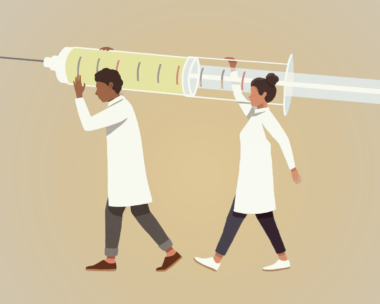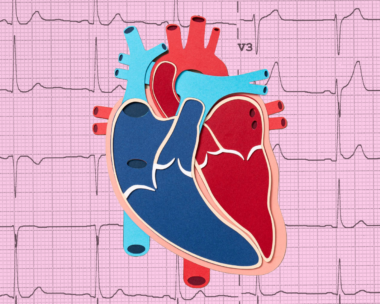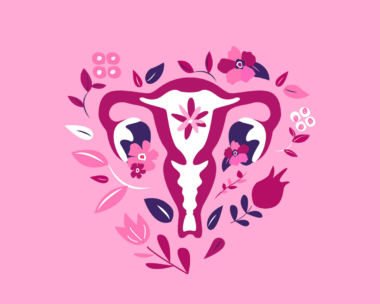When Danielle Horton fainted in her kitchen at age 21, she thought it was due to a bout of flu. In truth, her life hung in the balance – not because of a virus but because her kidneys were failing.
“I had no idea my kidney function was at five per cent,” says Danielle. “I just thought I hadn’t been able to shake being sick because I was working three jobs and playing sport, and was pretty sure anyone would be tired on my schedule. It’s amazing what your body can deal with without you really realising how sick you are.”
That is particularly true of kidney disease, something two million Australians are dealing with – what is most disturbing is that 90 per cent of that two million are unaware anything is wrong.
“We are born with two kidneys so we have a lot of kidney reserve and it’s not until a lot of damage has occurred that symptoms arise,” says Karen Dwyer, a nephrologist and Affiliate Professor at Deakin University. “When they do, those symptoms are insidious and non-specific, so people often attribute them to another reason. Kidney failure is usually the last thing on their mind.”
To save Danielle’s life, she was given 10 rounds of plasmapheresis, a blood filtering process she describes as “basically like a washing machine that spins the blood and separates the white and red blood cells”. She was then put on kidney dialysis, a life-changing ‘sentence’ because it means full dependence on an external machine to stay alive.

“There are two types of dialysis. One means you are hooked up to a machine at the hospital for five hours, three times a week. The other means having a catheter inserted into your stomach and involves filtering out the bad stuff four times a day, seven days a week through a gravity-fed system. There is no break,” explains Danielle.
After six months of the latter, her kidneys switched back on and life seemed to be getting back on track: Marriage, and then falling pregnant, felt like a huge blessing. But at 23 weeks into her pregnancy, Danielle once again required dialysis and, just two weeks later, her daughter was brought into the world.
“She was 610g, not much more than the size of a block of butter,” says Danielle. “Her life was in danger and so was mine, so we had to make a choice about whether to intervene. We made the right one. She’s 13 now and a miracle really. It was all worth it.” It did take its toll, though – despite watching her diet and fluid intake, Danielle’s function declined. “I felt nauseous all the time. My skin was itchy, I had restless legs, and I was so fatigued. It’s really hard to explain to your child why mummy is sick all the time.”
In 2020 she underwent transplant surgery. “That was when I realised how sick I had been because I immediately felt better. Even the brain fog had lifted.” The boost was short-lived because three months after surgery she contracted COVID and developed further complications, including a life-threatening blood infection and 12 months of severe, chronic gastrointestinal issues that left her nutrient deficient. “I could mope about and say poor me, but I just get in and do what I have to do,” she says with conviction. “What I do want to say, though, is that what everyone else should do is go and get their kidney function checked!”
“Living with kidney
Danielle
disease means I have
learned a lot of new words
for Scrabble! If you don’t
laugh, you cry, right? So
I choose to laugh.”
All that involves is a blood and urine test, plus a check of your blood pressure. “The urine test is really important because we look for protein leaks, which gives us a sense of how much intrinsic damage there might be,” says Karen, who is also Clinical Director at Kidney Health Australia.
“The kidneys are like chicken wire. They filter out waste products from the blood and into the urine. If you get a hole in that chicken wire, then lots of the good stuff, the good protein, flows out into the urine. As we have two kidneys, you can have a big hole leaking protein without seeing that change on your biochemistry [blood test].” Professor Dwyer says anyone over 60 should be tested annually, or from 18 years of age if you are Indigenous. Although it’s silent early on, kidney disease mostly doesn’t exist by itself – high blood pressure, diabetes and hypertension are a major cause, as is excess weight.
“Menopause is challenging as hormonal changes can predispose you to higher blood pressure, insulin resistance and weight gain, which all impact kidney function,” says Karen. As always with your health, the genetic lottery also comes into play. For mother-of-four Renee Baldock it was heartbreaking to discover that one of her newborn twins had juvenile kidney disease. “We spent a lot of their first year in hospital because Izzy had such severe hypertension and the medications needed to change every time she grew. It would take weeks to get the new dose to work. I was quite teary as I found it hard to deal with.”

Now aged 15, Izzy’s kidney function is at 25 per cent – not far off the 15 per cent mark at which she will be prepared for a transplant. “Six years ago, the doctors told us that Izzy would not get through the next winter without a transplant but she’s still going,” says Renee. “I am a donor match for Izzy so I plan to donate one kidney to her.” Initially the specialists put Izzy’s kidney disease down to bad luck. It wasn’t until after Renee gave birth to another baby, Charlotte, two years later that they found it was due to a recessive gene – one that, against all odds, both Renee and her husband, Shane, carry.
“I lost the plot, I was beside myself because all through the pregnancy we thought Charlotte was perfectly healthy,” says Renee. Charlotte, now 13, will also need a kidney transplant in the future. In a rare stroke of luck, Shane is a perfect donor match.
“Izzy is scared but excited about it because she wants to feel better, but Charlotte is just terrified,” says Renee. “I am dying to see them actually feeling good and not tired or in pain.” While the time-intensive practicalities of managing the medications, appointments and day-to-day health implications have become routine in their household, it’s not hard to imagine that living with the knowledge that things may get worse before they get better is a heavy weight for any family to carry.
“I can stay strong for ages but then I will have a moment where I fall apart,” admits Renee, who has always found the monthly kidney function tests at hospital an anxious time. “It can be as simple as cutting the chicken wrong during dinner and I’ll just stand there and bawl my eyes out … I feel exhausted, so mentally exhausted, every single day.” In preparation to donate a kidney to their daughters, both Shane and Renee have had to watch their own health, too. “Sometimes I worry about how I will feel having a kidney removed but I’ve done a lot of work to get healthy,” says Renee.
“I think we will get through it and it’s something I always stay positive about. We simply don’t have the option of falling apart because we have four girls that need us.”



